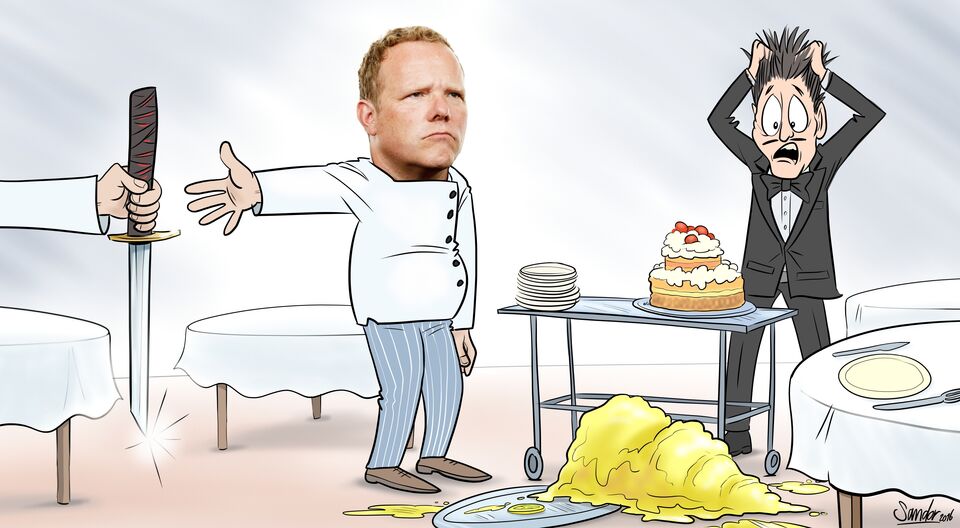Brainmatters | Oops! I dropped the lemon tart
As someone able to speak from experience when it comes to making mistakes - from minor errors to epic blunders - I felt entirely at home last week Friday at the symposium ‘The positive side of making mistakes’. A mistake does, of course, provide an opportunity to learn, the motivation to change, the basis for personal growth. ‘Yeah, right,’ comes the cynical echo. That voice in your own head, the voice of your parents, your teacher, or your boss during the annual Performance & Development interview often suggests that making mistakes is not actually valued. And that is wrong.
A wonderful series will astound you on Netflix - Chef’s Table - about top chefs and their top restaurants. But it is chiefly about how they have reached the top - by trial and error. One of the early episodes focuses on Massimo Bottura, the top chef of the 3-star restaurant Osteria Francescana in Modena, Italy. Here, the signature dish on the menu is ‘Oops! I dropped the lemon tart’ - the result of, you guessed it, accidentally dropping the lemon tart shortly before it was due to be served. The first thought of the Japanese sous-chef who dropped the tart in question was to commit hara-kiri, but Massimo saw the beauty in the mistake, and put the dish on the menu.
Carol Dweck, a psychologist at Stanford University, talks in this context about a growth mindset - a mindset that is not based on a given talent, intelligence level, or aptitude for, say, mathematics, but on the notion that skills can be learned - through practice, and by learning from mistakes and feedback. Instead of constantly documenting how good you may well be compared to others - and avoiding situations in which that self-image could get tarnished - learning-oriented people adopt a more open attitude towards their personal development and opportunities for growth. With this mindset, negative feedback is not a reason to commit hara-kiri, but a useful and positive learning opportunity.
All this is naturally easier said than done at a university where excellence is explicitly highly rated. And where we are all forever bending over backwards to achieve all sorts of performance targets, from enrolment/graduation ratios to impact factors. We sometimes forget why we are here. It is not for the grades and rankings and awards. It is about learning and growing, as people and as an organization. And although not every mistake will become a culinary success, a focus on learning really will raise performance - precisely because that was not the aim. And that is the positive side of making mistakes.
Wijnand IJsselsteijn | professor of Cognition and Affect in Human-Technology Interaction


Discussion